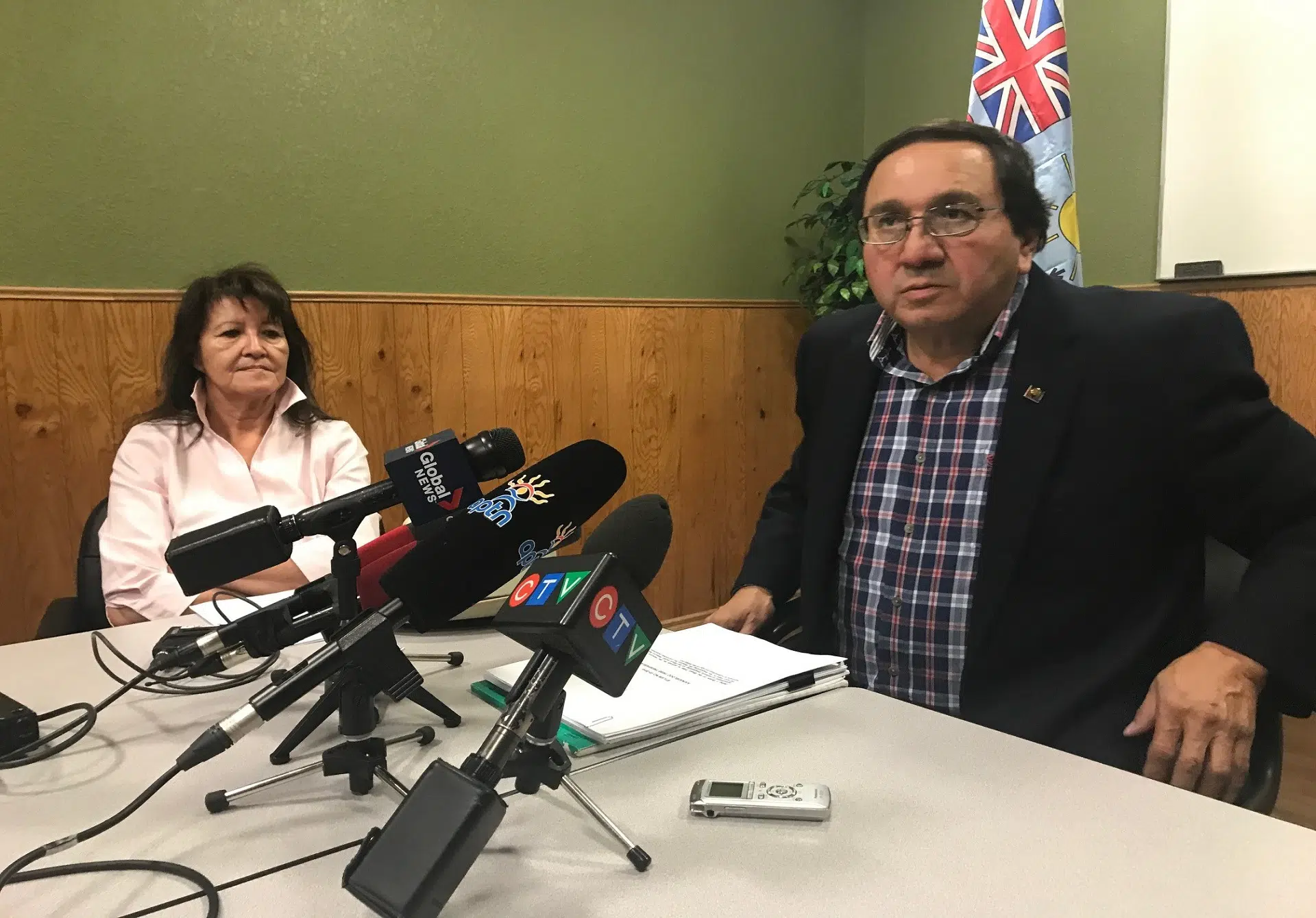
Blood Tribe Councillor admits new permit fees are a business tax
BLOOD RESERVE – “Reserves are for Indians. For the use and the benefit of Indians only. And over the years, because of some of the support services that we required, we had to allow non-tribal members to be on the reserve without actually asking them to pay for any kind of a fee. When you take into consideration some of the professions you (LNN) have identified: nurses, doctors, teachers, whatever, they do make a lot of money at the reserve. You look at a doctors and lawyers and they make a lot of money by being retained by the tribe, the various entities… so asking them to pay a small fee is not necessarily an inconvenience.”
Longtime Blood Tribe Councillor Dorothy First Rider made those comments, admitting the new Entry and Residency Permit fees that are now required for anyone doing business with the Blood Tribe on reserve, are to help the local economy and are a type of business tax.
“The professional people as we understand do not bring that kind of activity (drugs) on the reserve. However when there are businesses that are conducting activity, especially in the trades etc., in nearby towns and municipalities and cities, they all have to pay some kind of a tax to be able to engage in construction work etc… so this is no different.”
The pay permit requirement became effective May 13, after months of delays and numerous questions from not only the general public, but also tribe members and those who live on- reserve who are not tribe members.
That information though, is contradicted by both Chief Roy Fox and First Rider who also claim the purpose of the permits and fees is to try and curb the infiltration of drugs/drug trafficking and illegal activity on- reserve; to know who is coming and going at all times.
“What it does is gives an indication who should be on the reserve rightfully.” Explains Fox.”They’re conducting real business, and then if people do not have a permit, then the police could question those individuals more. It’s meant for those who shouldn’t be here.”
Questioned about whether Blood Tribe members themselves could be bringing in drugs, he says to date, many of the drugs being brought in, are brought in by outsiders. He says Tribal Police are aware of tribe members who are involved in the drug trade, and are continually monitoring them.
The permits range from $25 for non-member spouses and family members per year, to $2000 per year for private and professional firms like Lawyers and Accountants.
The fees for Vendors, Trades, Contractors, and individual professionals and those working for Blood Tribe Administration or as employees on reserve who are NOT tribal members, is $500 per year.
Some of those professionals LNN has learned, say they will simply add the cost of the permit to the bill they submit to the Blood Tribe.
It’s something Chief Fox wasn’t happy to hear.
“I suppose anybody can come up with innovative ways of not paying taxes or fees as you call it by passing it on to the end user. They’re free to do that. However, you know, we are instituting an overall financial and business plan….. and we will know who to do business with.”
But there has been no mention of using the fees collected to help curb the drug issue on the Blood Tribe First Nation. Instead, First Rider says the revenue generated won’t amount to much, and it will go towards other things.
“The money is going to offset our administrative costs in implementing this program…..Our membership is going to be developing and drafting and issuing residency cards… permit cards for individuals (non- tribal members and those under the age of 18) to reside on the reserve. And those are very expensive. The cards are going to have the individual’s photo on it, they’re going to be laminated, and it’s a form of ID that they can produce if they are asked whether they are supposed to be legally on the reserve or not. We have posted a position from our Lands Management department for somebody to issue the permits, so that is another staff person we require.”
Chief Fox says those who are invited onto the reserve by a tribe member or group do not have to pay the fee, nor to those passing through on the public/provincial highways near the reserve, those who are attending a public activity if that’s the only thing they are doing on -reserve.


